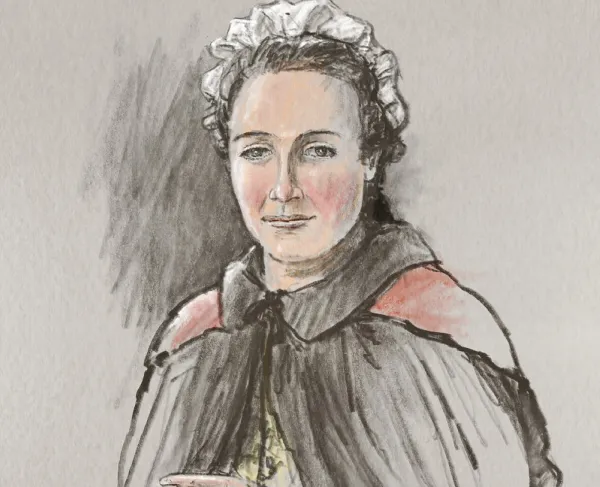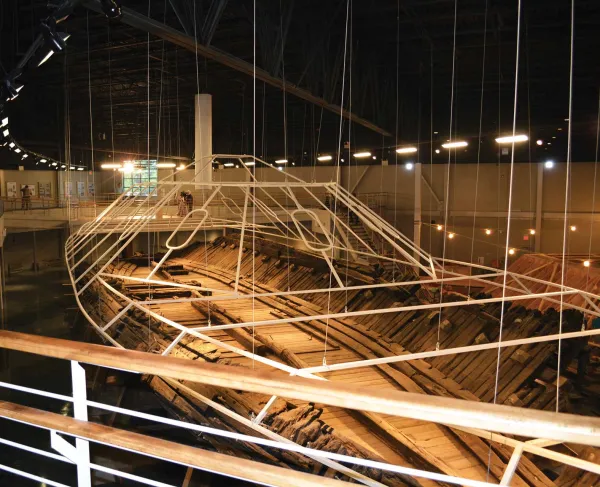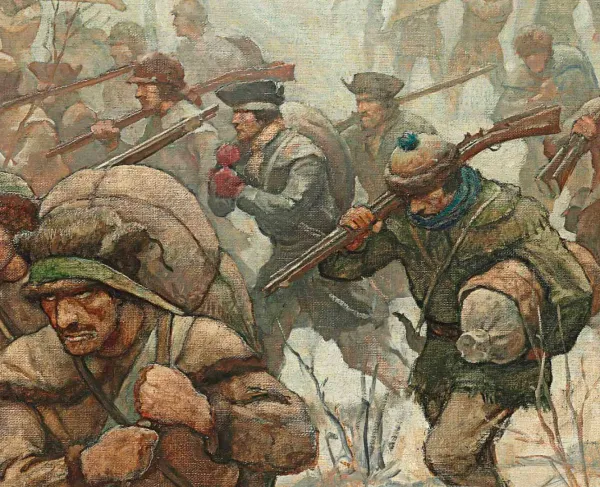Interview with American Battlefield Trust's 2017 Abroe-Carter Award winner: David Wege
Recently we had a conversation with David Wege a teacher Waucosta Lutheran Grade School in Cambellsport, Wisconsin, to touch base about his experiences with the American Battlefield Trust, personally and professionally.
Wege was the recipient of the 2017 Abroe-Carter Award; the award is given to determined educators dedicated to helping their students learn and grow. Wege, who has been teaching for 39 years, shared how the Trust has positively impacted his classroom and his students. He has a special affinity for the individual soldier’s story when teaching the Civil War.
Read the full interview, edited lightly for clarity and continuity, below:
What got you interested in teaching in the first place?
My grandmother taught for 33 years. I also just like education. There is a special joy that comes from making connections with my students and their families.
What’s your particular passion for the Civil War?
My interest has always been in the individual soldier, the man who carried the musket rather than the one who planned the campaigns. I also have a deep interest in the regiments of the famed Iron Brigade, as they were the only all-western regiments in the all-eastern Army of the Potomac. Of the Iron Brigade regiments, the Sixth Wisconsin Volunteers and its brave boys of '61 fascinate me the most. I have researched many of those men, especially soldiers of Company E. Several "Black Hats" lived within a musket shot of where I live and teach.
Do you have a favorite personal memory related to the Civil War?
I wasn't alive then. However, vicariously, I enjoy studying the exceptional courage of the 6th Wisconsin in the Cornfield at Antietam and at the Railroad Cut at Gettysburg.
Why is learning about the Civil War important for students today?
The Civil War created the United States. Before the end of the war, many citizens gave allegiance to their state before their country. I recently asked my students about the value of history as part of an application for a field trip (sponsored in part by the Trust's History Field Trip Grant Program). One replied, "I believe that when you study history out of a textbook you never really grasp the meaning of the words that are written. This trip will provide a “hands-on” experience and truly bring out the reality of the events that took place there. This will make history become more realistic and give me a new perspective on learning history.” That student's insight is exactly what I am trying to teach.
How easy/hard is it to teach Civil War history in today’s educational environment? Why?
I am blessed to teach in a school where I have free reign with the history curriculum. Therefore, I can choose to spend six to seven weeks on the conflict. That being said, I am often asked why I "waste" that much time on events from 150-some-years ago. My answer is simple: echoes of the Civil War are still sounding in politics and society today. The sacrifice of soldiers and citizens from the 1860s has much to teach us about being Americans in the modern world. Not all of the lessons taught are good, but most have value from which we can learn.
Many critics of today’s educational system say, “Teachers aren’t teaching history anymore!” How do you respond to that?
I do fear that schools have replaced history classes with other curricula. We discuss this in my classroom, and students say that they are amazed at what friends from other schools simply don't know or haven't been taught. It is imperative that students be exposed to their history and heritage.
What are some of the things you do in your classes to teach the Civil War?
Besides a unit that ends with a 200+ question test, we also spend time at an annual Civil War School Day, a field trip which my kids request that we do every year. I also bring in several uniformed mannequins, artifacts, and reproduction items to provide hands-on experiences. This includes their firing of a reproduction 1861 Springfield musket.
Of course, being able to walk Hallowed Ground has helped. Since we have gone to "walk the ground," not a single student has failed that 200+ question test that ends the unit! They say going to the battlefields matters!
The Civil War Trust expanded its mission to now include the Revolutionary War and the War of 1812. How do those content areas tie into what you do?
The other larger history units I teach include one on the Revolution. It is taught in an alternating year from our Civil War studies. Themes of the sacrifice and dedication of common citizens in extraordinary circumstances resonate throughout these units. Teaching our history is a significant part of the process of educating students in the need for active citizenship. Being proud of our country, even with all of its flaws, is essential to moving forward in unity as Americans.
How has the American Battlefield Trust supported you in the classroom?
We are spoiled by spending time with teachers at the Trust's annual Teacher Institute. Surrounding ourselves with like-minded educators is a joy. I have attended the Institute for many, many years. In my classroom, we make use of In4 and War Department Videos, fantastic maps and many of the primary documents provided by the Trust. When our trip to Chickamauga, Chattanooga and Franklin ends in May, I will have made use of the History Field Trip Grant Program twice. In 2016, we followed the Iron Brigade at Antietam and Gettysburg. This year we are traveling to the Western Theater.
How has being awarded the Abroe-Carter Award by the Trust helped you?
First of all, it was incredibly humbling. It also was a complete ambush, something I was never expecting. I want to be worthy of that honor. The award reinforced even more that teaching our history matters. Being honored by the Trust in this way also convinced me to share my passion for the Civil War with adults outside of school. My wife Kay and I now lead an annual tour to Civil War sites through a group we call the Civil War Time Travelers, LLC. This may become a retirement gig!
Since winning the award, have you completed any new projects with your students, or are you in the process of completing any special projects?
I am very active on the Civil War speaking circuit in my area. Since receiving the Abroe-Carter Award, I have enjoyed incorporating my students more into presentations. One student delivered a short speech at our Milwaukee Civil War Round Table. He got a standing ovation when he was done, and he treasures the moment.
Listeners enjoy hearing kids' reactions to historical events and, perhaps to their astonishment, realize we aren't all that different from one another. Getting students more involved this year will include assigning mini-presentations for them to research and deliver at Chattanooga and Chickamauga on our field trip!
What sort of pitch would you make to fellow educators about the Trust’s Teacher Institute?
The annual Teacher Institute is a highlight of my summer. We learn great content, experience museums and battlefields with enthusiastic fellow participants and create a network of friends and colleagues that is unsurpassed in anything I have ever done. The Trust brings together strangers who have become not only friends, but also professional resources for one another.
What advice would you give to a first-year educator?
Enjoy! There's is a lot to learn but little to fear. Make use of the Trust's incredible resources rather than trying to reinvent the wheel. Come to the Teacher Institute to learn, share and grow.





